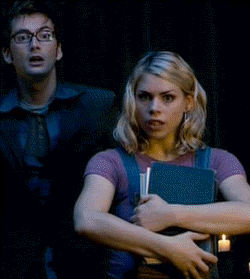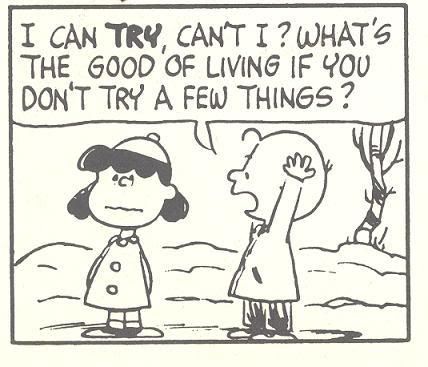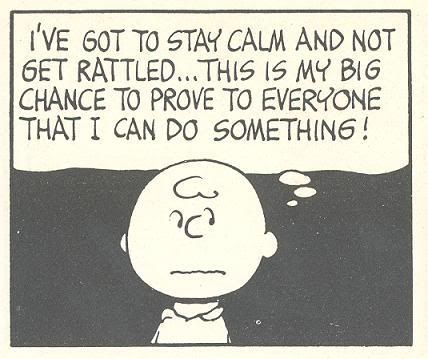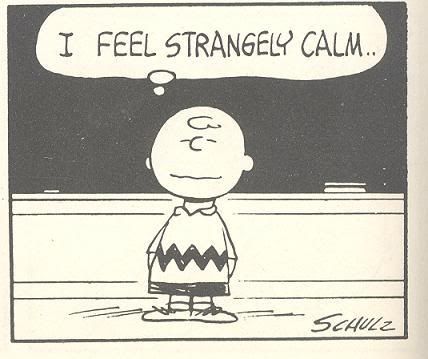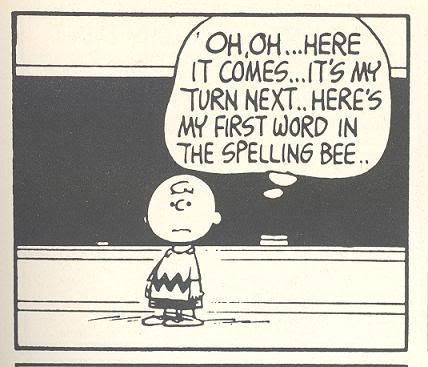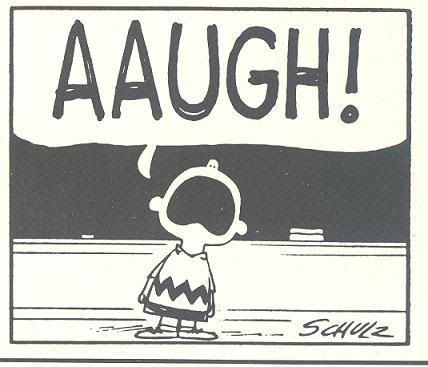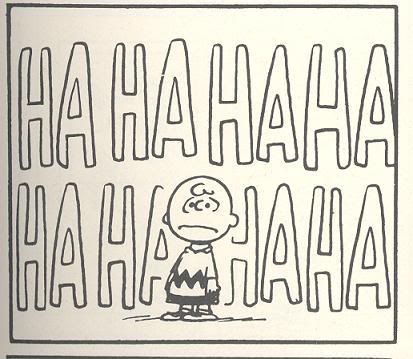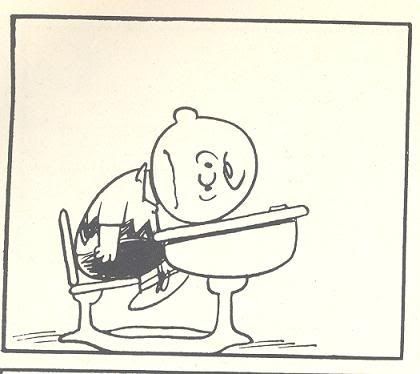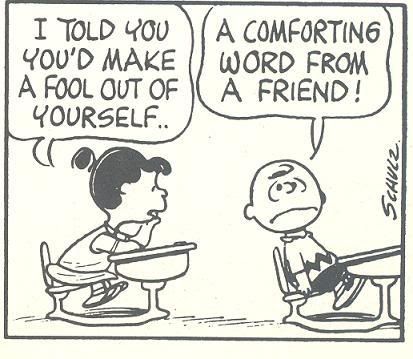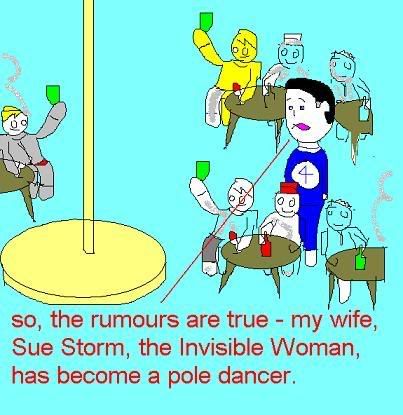What all of t he mini-essays in that article come very close to saying is that the Target Who world is better than the TV one. Books, like radio, allow the mind to paint far greater pictures than the limitations of television studios/budgets/imaginations will allow, we all know that... what's spoken of less is how it gives the reader/listener the opportunity to (for want of a far far better and more appropriate and less wanky expression) psychoanalyze what's going on in the story. Terrance's 'Terror of the Autons' is superior to Holmes' Tv story not just because it actually gives us a brillaint Nestene creature ("part spider, part crab, part octopus" beats 'crackly little fuzzy cloud superimposed over some eletrcity pylons' every time), but because it lets us feel Jo Grant's total fear and apprehension when stalking the Master. And, for fanboys, it also gives us little bits of lore that connect the story to other Who stories, so the master's bomb is referred to as "a Sontaran fragmentation grenade."
he mini-essays in that article come very close to saying is that the Target Who world is better than the TV one. Books, like radio, allow the mind to paint far greater pictures than the limitations of television studios/budgets/imaginations will allow, we all know that... what's spoken of less is how it gives the reader/listener the opportunity to (for want of a far far better and more appropriate and less wanky expression) psychoanalyze what's going on in the story. Terrance's 'Terror of the Autons' is superior to Holmes' Tv story not just because it actually gives us a brillaint Nestene creature ("part spider, part crab, part octopus" beats 'crackly little fuzzy cloud superimposed over some eletrcity pylons' every time), but because it lets us feel Jo Grant's total fear and apprehension when stalking the Master. And, for fanboys, it also gives us little bits of lore that connect the story to other Who stories, so the master's bomb is referred to as "a Sontaran fragmentation grenade."
 he mini-essays in that article come very close to saying is that the Target Who world is better than the TV one. Books, like radio, allow the mind to paint far greater pictures than the limitations of television studios/budgets/imaginations will allow, we all know that... what's spoken of less is how it gives the reader/listener the opportunity to (for want of a far far better and more appropriate and less wanky expression) psychoanalyze what's going on in the story. Terrance's 'Terror of the Autons' is superior to Holmes' Tv story not just because it actually gives us a brillaint Nestene creature ("part spider, part crab, part octopus" beats 'crackly little fuzzy cloud superimposed over some eletrcity pylons' every time), but because it lets us feel Jo Grant's total fear and apprehension when stalking the Master. And, for fanboys, it also gives us little bits of lore that connect the story to other Who stories, so the master's bomb is referred to as "a Sontaran fragmentation grenade."
he mini-essays in that article come very close to saying is that the Target Who world is better than the TV one. Books, like radio, allow the mind to paint far greater pictures than the limitations of television studios/budgets/imaginations will allow, we all know that... what's spoken of less is how it gives the reader/listener the opportunity to (for want of a far far better and more appropriate and less wanky expression) psychoanalyze what's going on in the story. Terrance's 'Terror of the Autons' is superior to Holmes' Tv story not just because it actually gives us a brillaint Nestene creature ("part spider, part crab, part octopus" beats 'crackly little fuzzy cloud superimposed over some eletrcity pylons' every time), but because it lets us feel Jo Grant's total fear and apprehension when stalking the Master. And, for fanboys, it also gives us little bits of lore that connect the story to other Who stories, so the master's bomb is referred to as "a Sontaran fragmentation grenade."The last books of the original run performed these functions even better, with Uncle Ben's 'Remembrance' book giving us excerpts from Dalek mythology as well as the interior monologues of Professor Rachel Jenson (her horror at Ace, and what sort of a world could have spawned someone like her, is utterly brain-buggeringly brilliant). Marc Platt's 'Ghost Light' even has Ace pondering the subject of the Doctor's sexuality.
Would novelisations work today? Well, yes... but be careful what we wish for! Do we want the dumbed-down novelisation style of the Sarah Jane or Primeval novelisations? It's weird, but novelised stories aimed at (largely) children these days follow a Scholastic-style approac h in ways that other 'proper' kid's books don't need to follow. Modern children's literature can be as fluid and individulaistic in ways that the namby pamby Scholastic-style editors would find shocking, controversial and offensive ("hey, let's get Melvyn Burgess to novelise 'Invasion of the Bane' and see what he does with the naked Luke..."). It's only because a text is seen as a TV property that they make it play safe. No scantily-clad Abby in the Primeval kids books (but plenty in the differently-marketed 'adult' original novels).
h in ways that other 'proper' kid's books don't need to follow. Modern children's literature can be as fluid and individulaistic in ways that the namby pamby Scholastic-style editors would find shocking, controversial and offensive ("hey, let's get Melvyn Burgess to novelise 'Invasion of the Bane' and see what he does with the naked Luke..."). It's only because a text is seen as a TV property that they make it play safe. No scantily-clad Abby in the Primeval kids books (but plenty in the differently-marketed 'adult' original novels).
 h in ways that other 'proper' kid's books don't need to follow. Modern children's literature can be as fluid and individulaistic in ways that the namby pamby Scholastic-style editors would find shocking, controversial and offensive ("hey, let's get Melvyn Burgess to novelise 'Invasion of the Bane' and see what he does with the naked Luke..."). It's only because a text is seen as a TV property that they make it play safe. No scantily-clad Abby in the Primeval kids books (but plenty in the differently-marketed 'adult' original novels).
h in ways that other 'proper' kid's books don't need to follow. Modern children's literature can be as fluid and individulaistic in ways that the namby pamby Scholastic-style editors would find shocking, controversial and offensive ("hey, let's get Melvyn Burgess to novelise 'Invasion of the Bane' and see what he does with the naked Luke..."). It's only because a text is seen as a TV property that they make it play safe. No scantily-clad Abby in the Primeval kids books (but plenty in the differently-marketed 'adult' original novels).For novelisations to work in the ways they did in the old days, we'd need a pre-DVD, pre-PR, pre-dumbed down culture. Unless BBC Worldwide and their ilk have a massive rethink, that's probably not going to happen.
(p.s. pointless fact, but i finished reading 'Dr Who and The Zarbi' a while back and even Bill Strutton describes the Animus as being a bladder...)

